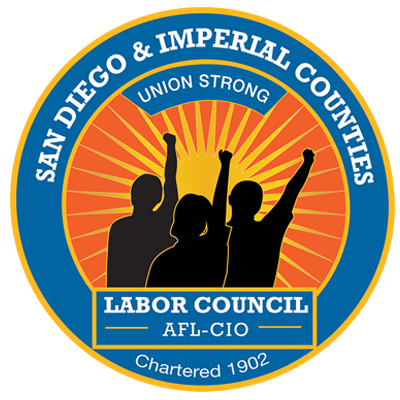he San Diego City Council approved on Monday construction of a 600-unit housing complex in Rancho Peñasquitos that could become a model for alleviating the city’s housing crisis.
The developers agreed to include 115 subsidized low-rent units after months of lobbying by labor unions and residents living in a 322-unit subsidized apartment complex that will be demolished to make way for the new housing.
The project could become a model for replacing dozens more subsidized complexes across the city that are vulnerable to the same fate because covenants that locked in low rents for decades are beginning to expire.
Some critics said that a better approach would be for the city and its housing commission to buy nearly all of those complexes before the covenants expire so they can remain entirely subsidized low-income housing.
Critics of the city say one reason this complex — PQ Village — wasn’t purchased is that the San Diego Housing Commission rarely pursues subsidized projects north of Interstate 8 because of higher land values. They say such an approach further segregates the city.
In addition to 115 subsidized units, the council’s 8-1 approval on Monday mandates that construction of the new housing can’t begin until alternate housing options are found for all residents of the existing complex with federal housing vouchers.
All residents will also get lump sum payments to help with moving costs and, in some cases, deposits on new apartments.
Supporters of the deal called it a landmark compromise because the developers weren’t required to provide any subsidized units or any relocation costs.
But when it became clear last year that a project without those features wouldn’t get the necessity support from a majority of the council, the developer agreed to several concessions that were finalized over the weekend.
“This project looked very different when first proposed, but after an extensive collaborative process, the property owner brought forth a proposal worthy of the City Council’s support,” Councilman Mark Kersey of Black Mountain Ranch said.
Council President Myrtle Cole of southeastern San Diego cast the lone no vote, praising the compromise but saying the city can’t afford to lose any subsidized units amid an affordable housing crisis.
"When seniors are stressing and they're worrying because they are being forced to relocate and restart their lives because their homes are being demolished for development, we have to revisit our housing policy," Cole said. "We don't want to create homelessness. We want to create housing affordability."
Carol Kim, spokeswoman for the San Diego Building & Construction Trades Council, said the compromise deserves praise.
"PQ Village residents were serious underdogs in this fight: no fancy lobbyists, no big money and no legal leverage," she said. "But these courageous leaders fought so that 300 vulnerable families will walk away with a safety net where they had none before."
Keith Maddox, trustee of the San Diego & Imperial Counties Labor Council, said the compromise he helped broker was noteworthy, but that new city policies are needed.
"We negotiated the best deal that is possible for these residents in a really bad situation," he said. “But this is just one example of what happens every single day in the city of San Diego because of inefficient housing policies."
Maddox said the city should stop allowing developers to pay in-lieu fees instead of building subsidized low-income units that the law requires. He said developers prefer the fees because they are typically 70 to 75 cents on the dollar. He also said the city is often slow to use the money they raise to build subsidized units.
The project approved by the council on Monday is just west of Interstate 15 on Carmel Mountain Road on a 41-acre parcel.
The 332 apartments will be replaced by 324 for-sale residential condominiums and 276 for-rent dwelling units within four three-story buildings wrapped around courtyards.
Sixty of the apartments will be subsidized low-income. The other 55 subsidized apartments include 12 in nearby Del Sur and 43 sprinkled across other housing projects owned by the developers, Atlantic-Pacific Companies and Lennar Homes.
The lobbying efforts were launched by the San Diego Organizing Project and a church near the PQ Village project.
